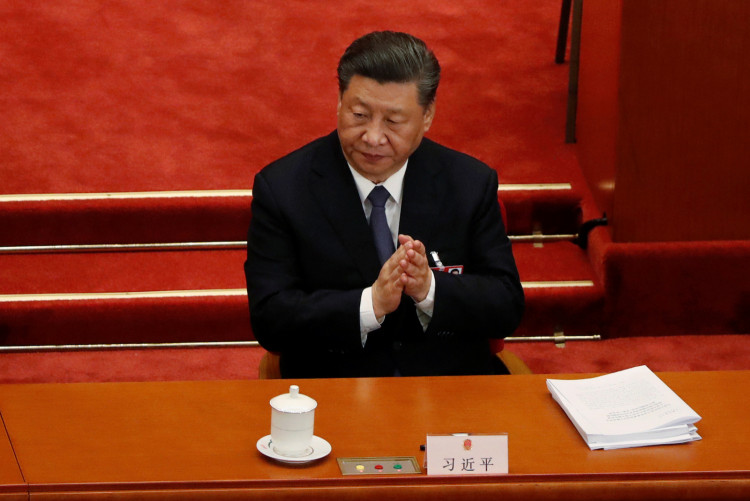Chinese President Xi Jinping has again vowed to open more of China's vast market to foreign companies while seeking to boost its economy through three pending trade deals.
Speaking by video Wednesday at the opening of the third China International Import Expo in Shanghai, Xi outlined how China plans to open its markets further to foreign firms and improve local operating environments. Along this line, he said China will strengthen intellectual property protections and slash restrictions on imports of technology.
"Our aim is to turn the China market into a market for the world, a market shared by all, and a market accessible to all," said Xi.
To attain this aim, Xi stressed growing foreign trade innovatively, improving China's business environment, and deepening bilateral, multilateral and regional cooperation.
He said China stands ready to sign high-standard free trade agreements with more countries, and will work to build a community with a shared future for mankind.
"We will work for the early signing of the Regional Comprehensive Economic Partnership (RCEP), and speed up negotiations of the China-EU investment treaty, and the China-Japan-ROK free trade agreement," according to Xi.
RCEP is a Free Trade Agreement (FTA) between the 10 member states of ASEAN or the Association of Southeast Asian Nations and their five FTA partners (Australia, China, Japan, New Zealand and South Korea). India might still become a member of RCEP.
RCEP will become the world's largest trade agreement when signed later this year. ASEAN consists of Brunei, Cambodia, Indonesia, Laos, Malaysia, Myanmar, the Philippines, Singapore, Thailand and Vietnam.
The 16 prospective member-states (including India) account for a total gross domestic product of $49.5 trillion, or 39% of the global GDP. They have a combined population of 3.4 billion people, or about half of the world population.
He also revealed China will take a key role in reforming the World Trade Organization (WTO). He pledged better cooperation with the United Nations, the G-20, and other international organizations. He called for countries and companies to work together in the wake of the COVID-19 pandemic.
Also high on Xi's trade deal agenda are two FTAs: the EU-China Comprehensive Agreement on Investment and the China-Japan-South Korea Free Trade Agreement. Both are still being negotiated.
Xi vowed China "will speed-up negotiations of the China-EU investment treaty, and the China-Japan-ROK free trade agreement."
The EU-China FTA is problematic, however. In October, German chancellor Angela Merkel said China must do more to make it easier for European firms to do business within its shores if it expects the same treatment in Germany and the European Union.
She pointed out any agreement between the EU and China such as the ongoing EU-China Comprehensive Agreement on Investment will have to involve reciprocity. This means European companies must enjoy the same freedoms to invest in China as China's firms do in Europe.





